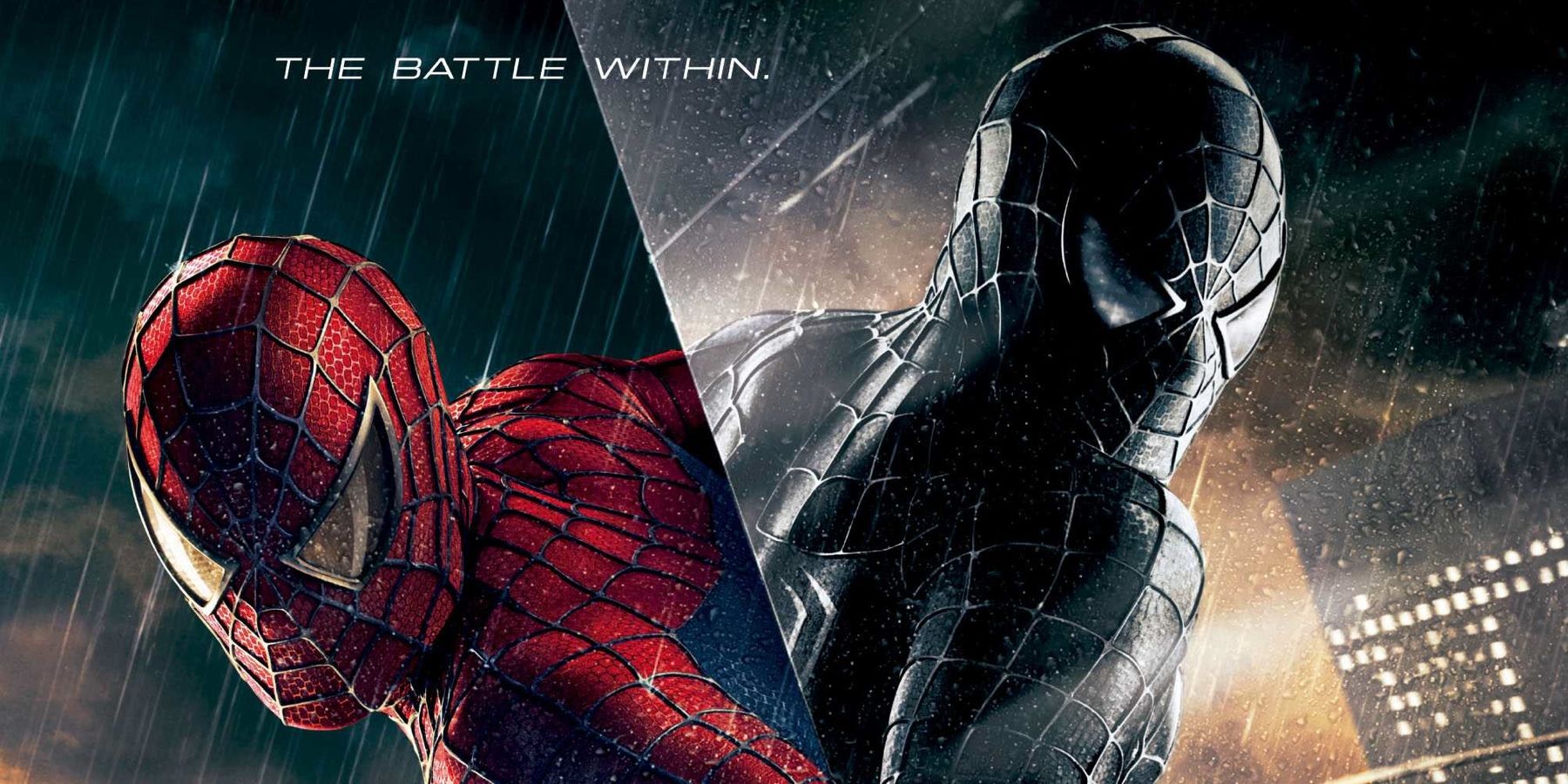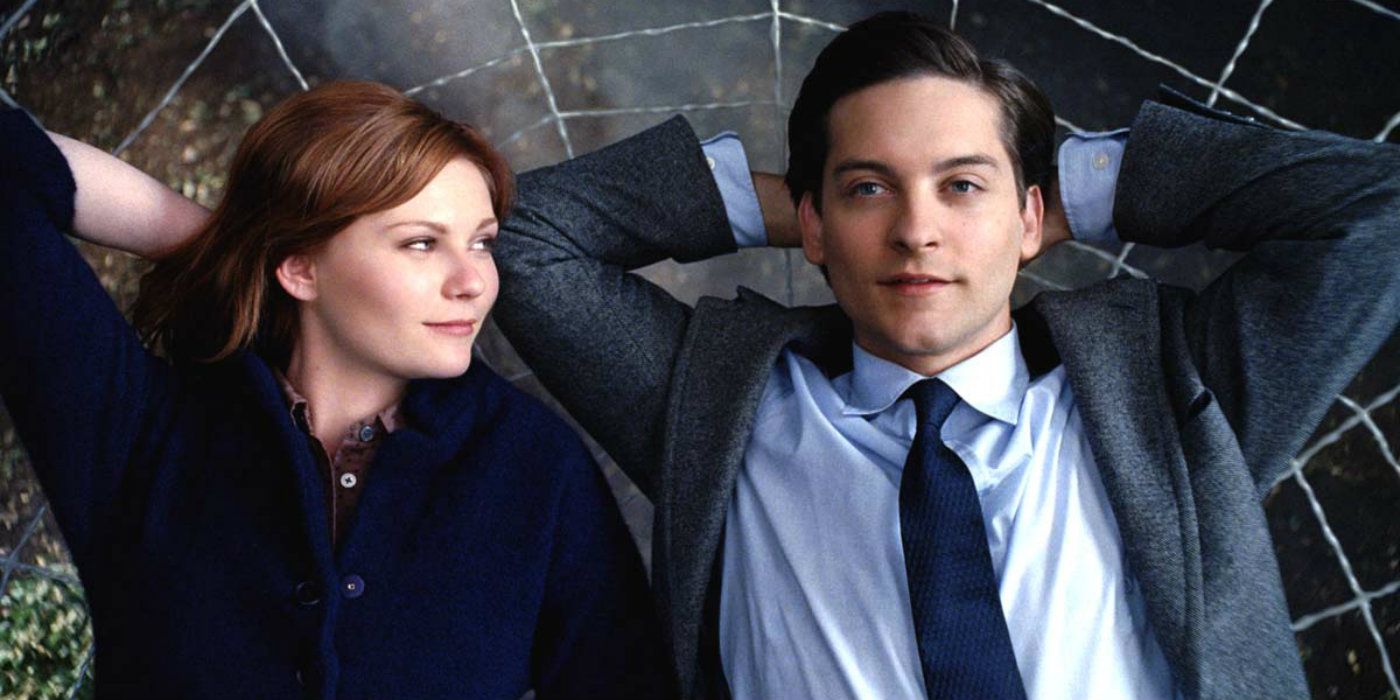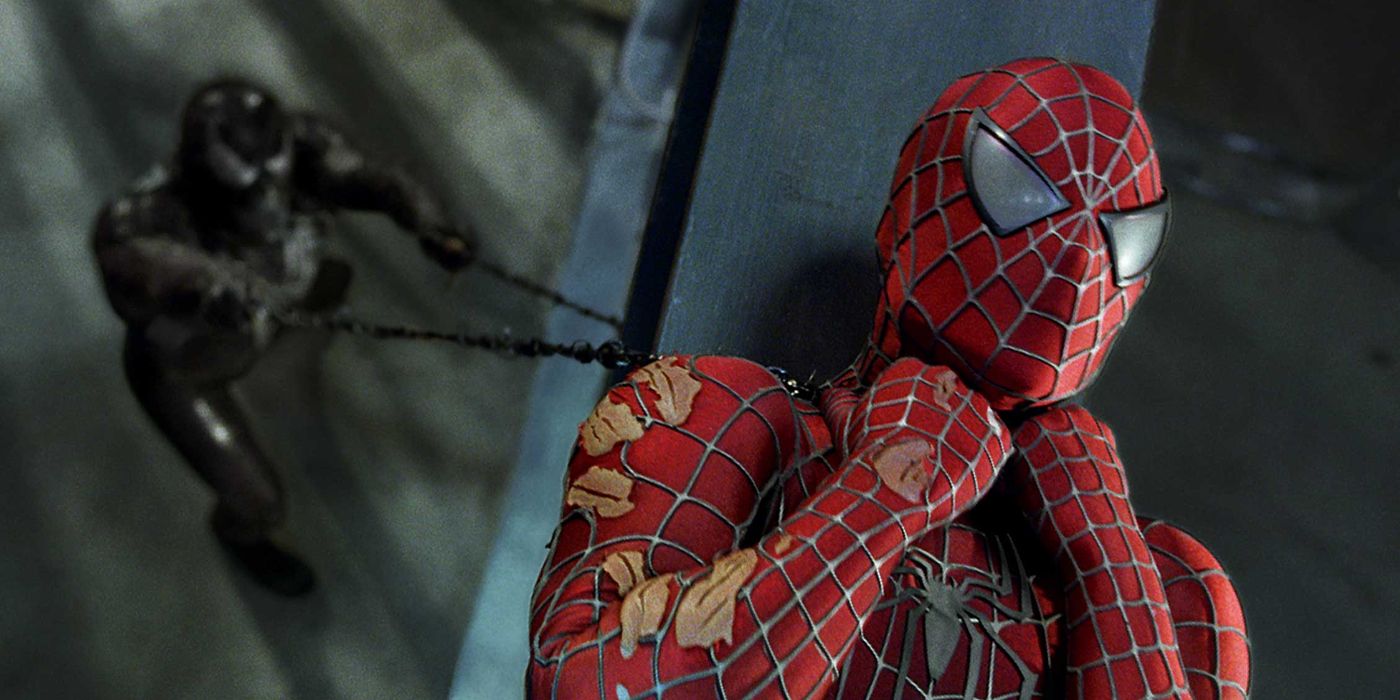Sam Raimi's Spider-Man 3 is without question one of the more divisive entires in the superhero genre. After scaling to tremendous heights with the first two installments of his trilogy, the director struggled to bring it all to a resounding close with the third film. Whether it was Peter Parker's bizarre dancing while under the influence of the symbiote suit, the strange retcon of Uncle Ben's death, or the forcing of too many characters in the story, viewers were quick to point out the various flaws, bemoaning what might have been if Sony didn't muddle with the creative process too much. Essentially, Spider-Man 3 killed the franchise, and the studio quickly rebooted the property five years later with The Amazing Spider-Man.
It was a rather ignominious end for one of the flagship series of comic book cinema, and 10 years after Spider-Man 3's premiere, many would rather just forget it ever happened. But is the movie as bad as some critics say, or is there something more to it that makes it worthwhile - despite its shortcomings? Nobody is making the argument that the film is a misunderstood masterpiece, though it does have a sizable faction of supporters who feel viewers judged it too harshly. Do they have a point? Let's take a look beyond the surface.
In the trilogy, the first movie was about a high school student's maturation into adulthood (the puberty parallels have been well-documented) and the second dealt with Peter adjusting to his new life, finding a balance between his personal needs and heroic obligations. As he swung out of his apartment at the end of Spider-Man 2, his life was in a pretty good spot. Yes, his relationship with best friend Harry Osborn was possibly beyond repair, but Parker had finally accepted the responsibility of being a crime fighter and landed the woman of his dreams. For the first time, things were working out for him and he could enjoy it all. Basically, he was the big man on campus, placing him in a fascinating spot for the third movie.
As Spider-Man 3 begins, it's told to us that Peter's alter-ego is a famous celebrity - perhaps the most recognizable face in New York City. It felt like a natural progression for the series and gave Raimi some new ground to explore. When crafting sequels, one of the biggest challenges directors face is finding a fresh direction for the story so things don't get stale. This was never a position we really saw Peter in before, so it provided him with a fascinating personal challenge. Based on his actions, it's clear that everything went to his head. After years of being the shy nerd few paid attention to, Parker was now flooded with love and adoration, allowing his ego to get the better of him. This is why he nonchalantly tells Gwen Stacy to give him a kiss as he receives the key to the city and why he makes every conversation with Mary Jane about Spider-Man. Peter is so blinded by his own success, he can't see how his decisions affect those around him. This is his character arc in Spider-Man 3.
If some of what Peter does in the movie makes viewers cringe, that arguably could be by design. Spider-Man is so beloved because he's one of the most relatable superheroes and represents the traits of the everyman. In Spider-Man 3, his darker side is highlighted. He's consumed by his own hubris, and we're supposed to feel uncomfortable watching that because the audience knows Peter is capable of being better, and he's just choosing not to. Granted, Parker prancing through the streets of New York and interrupting Mary Jane at a jazz club is probably more comical than Raimi intended, but the flip side of that is arguing the inherent dorkiness of it all perfectly captures the spirit of Peter. He doesn't know what to do with himself now that he (really, Spider-Man) is incredibly famous, and most of this comes when he is wearing the black suit. As Dr. Connors said, the symbiote enhances its host's sense of aggression, so Peter was never going to act like his usual self while he had it. Unfavorable traits would take over.
At the heart of Spider-Man 3 is a story about a hero learning the values of humbleness and humility, and as viewers we root for Peter to rediscover his true nature. Uncle Ben's famous mantra is the running theme of the whole trilogy, and in this instance "responsibility" applies to something other than using one's powers to stop a bank robbery. It mainly means to carry yourself in the "right" way and never lose sight of that. Usually, the hero's journey archetype starts with the protagonist at the bottom and watches him or her rise to the top, but this is the inverse. In Spider-Man 3's first scene, the web head is swinging through the skyscrapers of New York. When it ends, Peter is having a somber moment of reconciliation with Mary Jane as they share an embrace. It's quite the parallel. Through his experiences in this chapter, Peter remembered what was most important to him and went back to his roots. Instead of being extremely selfish, he does the right thing in the third act and is once again the well-meaning hero he's always been, endearing himself to viewers once more.
In addition to an intriguing personal story about the main character, Raimi also deserves credit for making Spider-Man 3 something of an endgame and leaving little (if any) threads dangling as the credits rolled. It's no secret he wanted to develop a fourth movie, and it would have been easy for him to leave 3 open-ended to set the stage for the next installment. Instead, he definitively closes the book on this story, offering emotional closure to the Peter/Harry Osborn dynamic and finally allowing Parker to stop feeling guilt over his uncle's death. In an era where several studio tentpoles are designed to set up sequels and spinoffs, there's something nice about a blockbuster that tells its own (relatively) self-contained plot and isn't burdened by shared universe expectations. Spider-Man 3 has a beginning, middle, and end and works as a somewhat satisfying conclusion to the trilogy. Over the course of three movies, fans saw Peter grow from boy to responsible adult; in retrospect, it's difficult to say where another movie could go.
This isn't to say Spider-Man 3 is completely devoid of problems. Harry's first act amnesia is weak writing and a cop out after what was teased in Spider-Man 2. Venom was severely underused, although the symbiote accomplished enough in underscoring the primary themes of combatting the "villain within." Gwen Stacy was merely a plot device to serve as a wedge between Peter and Mary Jane, contributing little else to the film (unfortunate, given her prominence in the comics). But to just write 3 off as unworthy would be a mistake as well. There's no denying it could have been a more focused production with some fine-tuning here and there, but overall, it works on its own merits. In a way, the film's reputation is worse than what's actually in there - making it one of the more underrated superhero films to date. Spider-Man 3 was a disappointment in the aftermath of its predecessors' greatness, but a decade of time paints it in a better light.



